Ways to help children become readers
Published on: 26 June 2023
Our Writer-in-Residence, SF Said, has spoken to some inspirational librarians to find out what really works to help children discover reading for pleasure.
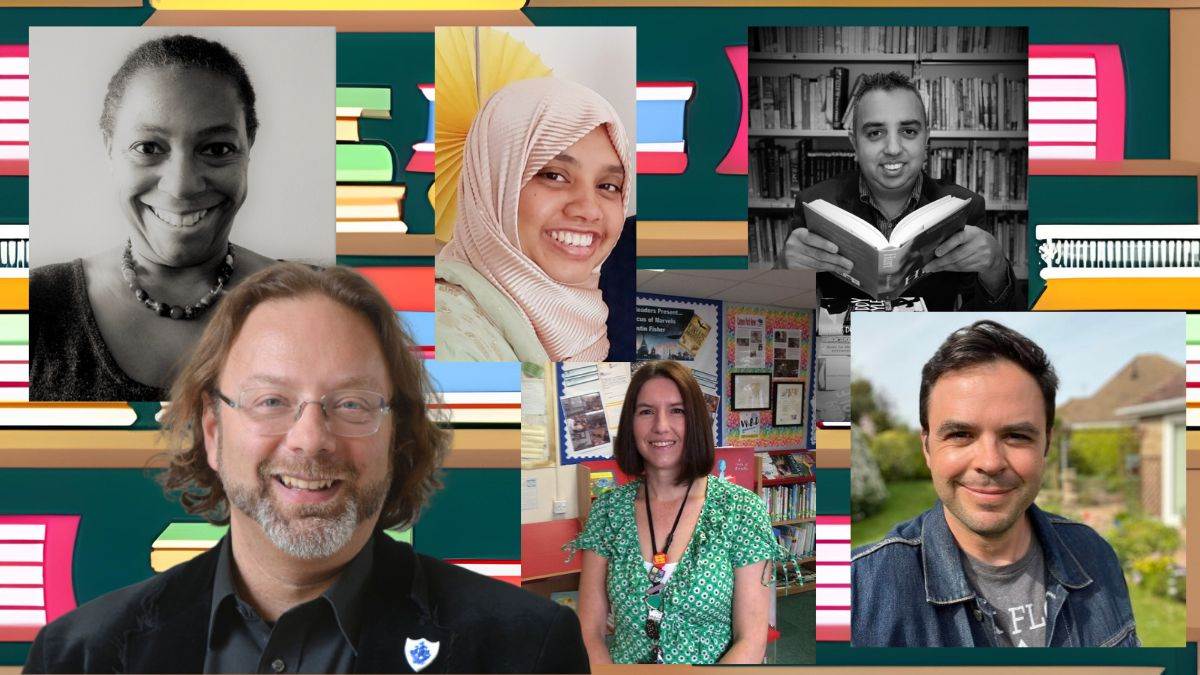
Our experts:
- Rumena Aktar: Primary School Librarian of the Year 2022; Librarian at Firs Primary School; Yoto Carnegie Judge 2023; Mother of Five. Follow Rumena on Twitter
- Nicki Cleveland: School Librarian, Cannon Park Primary School. Follow Nicki on Twitter
- Jake Hope: Reading Development and Children’s Book Consultant, librarian and awards executive for Yoto Carnegies. Follow Jake on Twitter
- Lucas Maxwell: Librarian, Glenthorne High School. Follow Lucas on Twitter
- Janet Noble: Librarian, Tower Hamlets Schools Library Services; Chair of Judges for the 2023 Yoto Carnegies. Follow Janet on Twitter
What are your top tips for helping children to become readers?
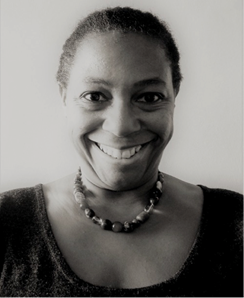
Janet Noble (pictured): Encourage children to talk about what they like and are interested in. There is a book out there for everyone, and if in doubt – ask a librarian! Get children to recommend books to each other. This is a great way to stimulate discussion and signpost children to books they might not normally consider.
Rumena Aktar: Cut screen time and give them a set time (20 minutes at least) where they can fully absorb themselves in a book. Take them to the library! Let them be exposed to a variety of books. Engage with authors online – follow them on social media. Send them reviews etc. Children love it when authors take notice of their comments.
Lucas Maxwell: My top tip is to be a reader yourself. Unfortunately, many children start to view reading as a form of punishment, but if they have a lot of choice and see the adults around them reading, it creates a different atmosphere. I would suggest reading to children on a daily basis.
"Author visits are also invaluable. They will help children fall in love with books in a big way."
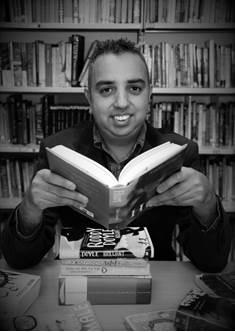
Nicki Cleveland: Don’t just tell children to read – show them why they should! Share your passion for the journeys books can take you on. I share a huge range of books for all ages, from picture books to graphic novels, stories of every genre including poetry and verse novels, and non-fiction. This means setting aside time every day to read and talk about books together, having book recommendations every week in assembly, and book clubs for every age group.
Jake Hope (pictured): Too often visual literacy and illustration have been seen only as stepping-stones towards standard literacy. We all live in a multi-modal society now where information is discerned across a range of media and formats.We need to encourage reading in a wide variety of forms. Just like a healthy diet of food, our reading palates become more developed and attuned to the world around us when what we read is varied and balanced.
What do you feel are the biggest barriers that prevent children from becoming readers?
JH: One of the biggest barriers around reading is being told people can’t do it, that what they enjoy or find pleasure in somehow isn’t ‘proper’ reading. Reading is inferring meaning from any object or situation that has cultural significance attached; it’s far more expansive and encompassing than we sometimes give it credit for. We are all readers and are reading all of the time!
LM (pictured): In my opinion the biggest barriers are access and choice. Many children do not have access to books at home or in their schools. Or, if they do, they do not have a librarian to guide them or to build a collection that reflects the diverse society they live in.
JN: Children need to encounter books in which they can see themselves, their experience and the wider world reflected. However, only 1% of the children’s books published in the UK in 2017 had a Black, Asian or Minority Ethnic main character (See source).
"Although the percentages have improved in the last 5 years, publishers must continue to strive to represent all the children in our diverse society in the books that they commission, publish and publicise."
RA: The biggest barriers for children are access to contemporary and relevant books. Most children are learning about reading through school. If schools aren't exposing children to the wonderful new literature that is available, then children won't be so keen to pick up books. It is imperative that teaching staff are using and sharing contemporary texts that the children will enjoy, in order to tempt them to read. Funding new books for schools and school libraries is key to this.
NC: Learning to read isn’t always easy (or fun), so we need to instil a love of stories in children to give them the motivation to want to learn. Not every child comes from a home where books and stories are cherished, or affordable. All our children have access to our school library so they can borrow a wide range of books. We also offer a school book swap where children can choose a book to keep.
What can we as adults do to be good reading role models for children?
LM: Read, read and read some more. Children should see adults reading, there should be plenty of reading material available, and this is why school and public libraries are so important. Another thing adults can do is not to dismiss the things they love. If they love comics or manga, let them read them. These are not inferior reading material. In fact, comic books are known to have more complex vocabulary than many standard novels.
JH: The most important thing is to read widely and to encourage and empower children to view reading as widely as possible. We need to avoid stigmatisation and the tired thinking that children’s stories are easy, simplistic or something we outgrow. The best stories are those which capture our hearts, minds and imaginations, transporting us to other worlds, helping us to vicariously inhabit the lives of others. A good story is a good story whatever age we are and whatever format it is told in.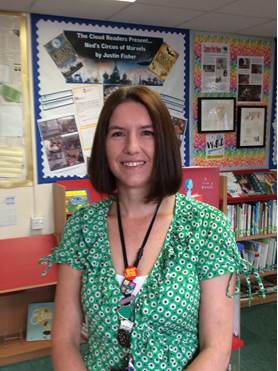
NC (pictured): Share our passion for books. Read the same books the children are reading so we can talk reader to reader, rather than teacher to child. I am constantly astounded by the quality and range of children’s books being published. Also, don’t just read and share novels – share poetry and graphic novels, magazines and non-fiction. Every form of reading is valid.
JN: Read! I grew up in a household without books. However, my parents loved reading the Jamaican Daily Gleaner newspaper, laughing and gossiping together as they caught up with all the news from ‘back home’. The idea that reading was about knowledge but could also be about pleasure, comfort and intimacy had a massive impact on me as a child and led me straight to my local library.
RA: The obvious one is read. Children mimic what they see. But also talk about what you’ve read. The art of conversation is being lost so these discussions aren’t being had.
"Over lunch or on the commute to school, talk to your children about the book you’re reading, so they see the joys that books can bring."
How do you build a real culture of reading for pleasure?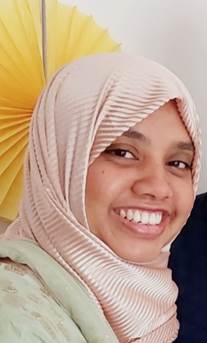
RA (pictured): It begins with staff. All staff need to get on board to make it a sincere effort. Not all adults enjoy reading books. But they can still share what they are reading with the children. Whether it’s a thread on Twitter, a gossip column in a magazine or a matchday schedule, make sure you talk about what you read and what it adds to your life.
NC: Celebrate reading in all of its forms. Push the Summer and Winter Reading Challenges from the Reading Agency – they are free to take part in and showcase brilliant new books from a range wide enough to please the fussiest readers. Run book clubs based on book awards. Have books and stories run as a thread through as much as possible so children see how much pleasure reading can bring.
JN: More libraries! We live in challenging times and not all families can afford to buy books. I firmly believe that every child should have free access to a wide range of good books, in a safe and welcoming library environment run by professional staff. Sadly, nearly 800 public libraries in the UK have closed since 2010 and currently 40% of primary schools have no budget for a school library (See source).
JH: Working for Lancashire Libraries, I developed a scheme called Lancashire Reads. It took the idea of the city read and ran this across the whole county. Bookshops, schools, libraries and families were brought together to help promote books and reading.
"If we can support and encourage communities of readers, we reframe how reading is seen and move away from negative stereotypes of reading as an isolated and passive activity. It can be hugely social and creative too!"
LM: Ensure that students see themselves as the heroes in the books they read, having a wide variety of reading material at their fingertips. Give students ownership over what they read. In a library, this means they help build the collection and have freedom to choose to read what they want to. I also feel you must show enthusiasm for the material, be relentless in your pursuit to find the right book for the right child and never give up.





